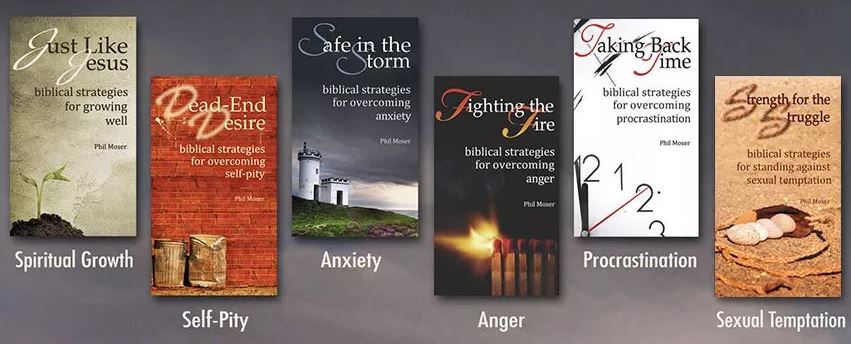How to develop gentleness with the not-so-gentle

 Search the phrase gentle as, and Google will finish the job with words like lamb and dove. We don’t typically associate that phrase with lions and tigers and bears. It’s easy to mistake the word gentleness with the word weakness. But the ancient Greeks had a different rendering. For them, the word meant “strength under control.” Aristotle thought of it as the middle ground “between bad temper and spineless incompetence, between extreme anger and indifference.” Adds one Greek scholar,
Search the phrase gentle as, and Google will finish the job with words like lamb and dove. We don’t typically associate that phrase with lions and tigers and bears. It’s easy to mistake the word gentleness with the word weakness. But the ancient Greeks had a different rendering. For them, the word meant “strength under control.” Aristotle thought of it as the middle ground “between bad temper and spineless incompetence, between extreme anger and indifference.” Adds one Greek scholar,
[Gentleness] is getting angry at the right time, in the right measure, and for the right reason […] it is a condition of mind and heart which demonstrates gentleness, not in weakness, but in power. It is a balance born in strength of character.1
In the Gospel record, we find a few occurrences where Jesus was righteously angry.2 But, it’s important to remember that Jesus wasn’t characterized by this response. He was characterized by a spirit of gentleness.3 As he was, so should we be. Here are a few ways we can begin to practice gentleness even in the most challenging relationships.
Pause to think before you react.
Perhaps you work with angry people. If so, your knee-jerk-reaction may not be one of gentleness. Next time, pause to think before you react. Slow down the process before you respond. If you tend to spar with your words or attitude, think carefully before you speak.
It’s difficult to imagine surviving the Holocaust without bitterness an angst becoming a lifestyle. Yet, one survivor has said,
Between stimulus and response there is a space. In that space is our power to choose our response. In our response lies our growth and our freedom.4
When Jesus faced the cross and severe mistreatment by the Roman soldiers, he responded in prayer for his Father to forgive them. (Luke 22:34). When we pause to remember the grace that was extended to us, it will make us for more likely to respond with gentleness. Notice how the Scriptures press this point home: Be kind to one another, tenderhearted, forgiving one another, as God in Christ forgave you [emphasis added] (Eph. 4:32).
Consider the other’s pain before you act.
Those in the medical profession are trained to ask questions as a part of diagnosing the patient’s condition. If you’ve ever been a patient, then you’ve answered the question: “On a scale of 1-10 how is your pain?” Usually, before a doctor will react to what you’re experiencing, he’ll attempt to discern the location and cause of the pain. I’m told finding the actual location of the pain can be a bit tricky. Pain can radiate through your nerves. The pain you feel in one part of your body may signal something that’s going on in another part. Remembering this picture, helps create gentleness in my dealings with others. When someone is short tempered or rude with me, I would do well to remember it may not be about me. They may be responding to a radiating emotional pain from somewhere else in their life. It just shows itself in their communication with me.
A friend passed on an insightful video recently. The actor had been given a pair of glasses that allowed him to see people’s pain when he looked at them. Because he had knowledge of their difficulty, he was able to respond differently. When he would put on the glasses, a popup would appear next to the individual that would say things like:
- avoids relationships for fear of pain
- discontent with life
- fighting addiction
- works two jobs to feed her kids
- grieving the loss of her best friend
- fighting with her husband
- ran away from home 3 days ago
- recently lost his job
- just needs someone to care
One of the quickest ways to develop gentleness is to consider the other person’s pain before you act. Jesus is our example in this matter. He was the one who could “sympathize with our weaknesses, for he has been tempted in every way, just as we are” (Heb 4:15). Perhaps such understanding brought about his gentleness with others. If you have not been gentle, developing this quality as a habit will not be easy. But, it’s made easier, by practicing two simple steps: (1) pause to think before you react, and (2) consider the other’s pain before you act.
Phil Moser is the author of the Biblical Strategies series. Click here for a complete listing of his books on Amazon.
1 Spiros Zodhiates. The Complete Word Study Dictionary: New Testament.
2 Matthew 21:12-13; Mark 11:15-18; John 2:13-22; Mark 3:5.
3 Matthew 11:29; 21:5; 2 Corinthians 10:1
4 https://www.brainyquote.com/quotes/viktor_e_frankl_160380

